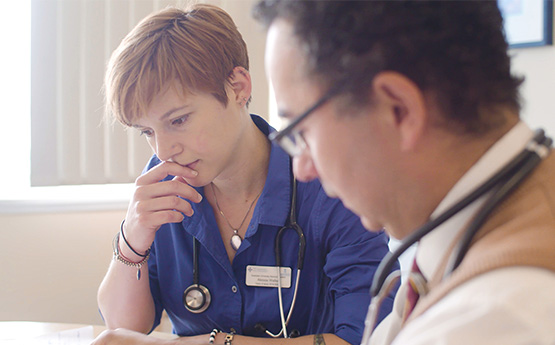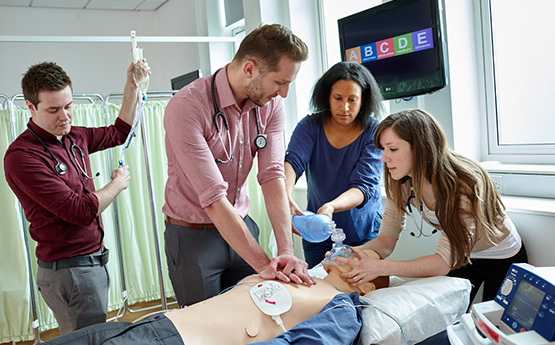Want to know what Medical Schools look for?
When we interview for Graduate Entry Medicine, there are 5 key competencies that we believe make a good doctor.

When we interview for Graduate Entry Medicine, there are 5 key competencies that we believe make a good doctor.

Communication is absolutely key to success in medicine, both as a doctor and for the patient. When preparing for your interview consider:
You will need examples of this.

Having someone else's life in your hands is a great responsibility and this means it comes with pressure, you need to be ready for this.
When preparing for interview consider some examples, with evidence and an explanation.

Human health and well being are often puzzles which can be quite perplexing. To be a good doctor you need to be able to solve these problems to make a correct diagnosis.
Remember your examples don't all need to be clinical, academic, or medical.

You will be dealing with people in some of the most challenging moments of their lives, so it is important to be able to manage yourself with integrity and learn from mistakes. Remember, no-matter the mistake because there will be mistakes when practising medicine, honesty is the best policy.

Medicine is a career and not for the faint-hearted. The daily challenges you will face as a doctor mean you will need a passion to keep going through adversity. So when it comes to interview don't forget to tell us:

Organisation and research skills are indispensable for doctors, and will play a pivotal role on your ability to provide optimal patient care in challenging and ever-changing healthcare situations. Our presentation is a great opportunity to highlight these skills:

Ethics and values are paramount in the medical profession, shaping the doctor-patient relationship and influencing every aspect of healthcare delivery. During your interviews, be sure to demonstrate: